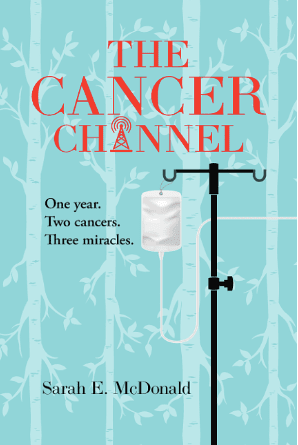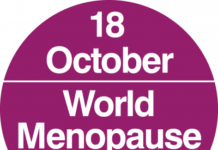Cancer is something that many of us will someday have to face. Either we will ourselves or we will have a loved one go through the experience. Author Sarah McDonald also went through this experience when she was diagnosed with two types of unrelated cancers in her early 40s. In an excerpt of her book, “The Cancer Channel,” Sarah McDonald explains what it was like after the diagnoses.
Ultimately I was alone, waiting. I am sitting here on the couch waiting to find out what happens next. I am waiting to hear what the tests and scans tell us. I am waiting to hear what treatments the doctors will suggest. I fear I am waiting for my death.
Surrounded by other living beings, I am lonely. I am on Cancer Island, cut off and remote. I stop buying new clothes because I don’t trust I will be alive in a year to wear them and their purchase seems frivolous and naively optimistic. The people around me are troubled by work, by the news, by social media, by other trivial things that consume them. How is it that a few short weeks ago I could be kept up at night by something as insignificant as my work to-do list? How did that ever seem important? My to-do list has been reduced to “live.”
I have Geoff. I have friends who take walks with me or meet for lunch, who bring me food, who text and email and call. I have people who are helping me fill up the waiting hours with activities. But ultimately, I am alone in facing this disease. When the doctors are telling me what they see in the scans, they are speaking to me, alone. While Geoff can hold my hand, it is me alone who receives the chemotherapy, the radiation, the surgery.
I cannot share the voices in my head with them, not even with Geoff. Out loud, my voices sound pitiful and overdramatic. I am embarrassed and muted by them. I fear losing my composure if I speak of them, of losing all control of my emotions, of losing my dignity.
Very unhelpfully, as I sit on my couch, I do what I know I shouldn’t do. I google the statistics—the survival rates for my cancers. I am told that for my breast cancer, the average five-year survival rate is 90%. The average 10-year survival rate is 83%. I can get behind these numbers. I can will myself to believe that I will be included in those large survival numbers. With those statistics, I can muffle the voice in my head that tells me I will die of breast cancer.
The statistics for the salivary gland cancer are harder, and it is Dr. Maxillofacial’s voice I hear when I read them. The internet tells me that “although most patients with ACC are alive at 5 years, a majority of patients die from their disease 5 to 20 years after diagnosis.” Also, “adenoid cystic carcinoma (ACC) is an aggressive, often indolent tumor, with a high incidence of distant metastasis (DM).” The words “relentless” and “incurable” are peppered throughout the summaries I read.
I try to remind myself that “incurable” and “terminal” are not the same words.
If you’re a cancer patient or know and love someone who is on this difficult journey, Sarah McDonald’s book, “The Cancer Channel,” was written for you. Sarah shares in vivid detail the events surrounding her year of treatments for two simultaneous unrelated cancers. She touches on both the terror and the humor that can be found in the little moments that are part fighting this awful disease. As a survivor and a champion determined to foster better understanding of the dos and don’ts with cancer patients, Sarah provides a story of hope to all who read this.
Help keep news FREE for our readers
Supporting your local community newspaper/online news outlet is crucial now more than ever. If you believe in independent journalism, then consider making a valuable contribution by making a one-time or monthly donation. We operate in rural areas where providing unbiased news can be challenging. Read More About Supporting The West Wales Chronicle























